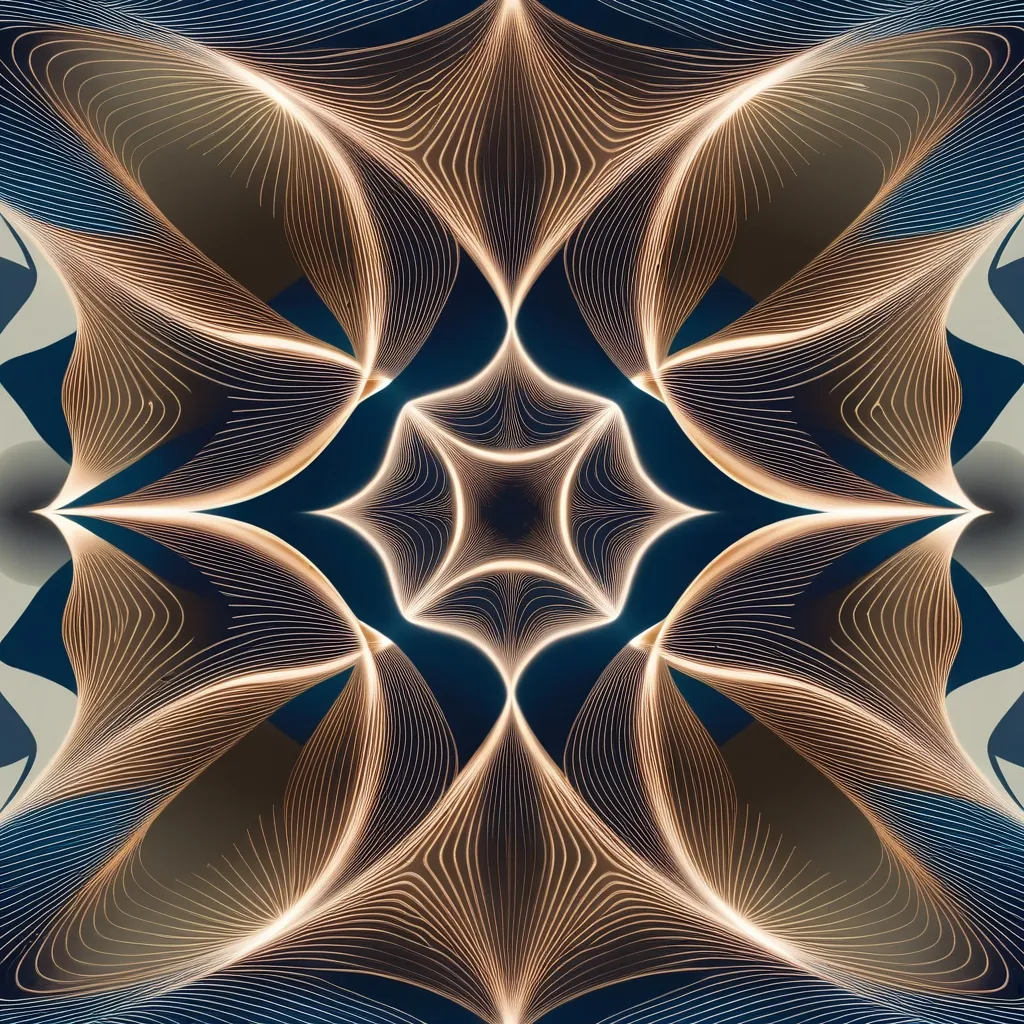Cymatics is one of those intriguing fields where science and art dance together, unveiling a world largely unseen. It’s the study of visible sound, where vibrations morph into stunning geometric patterns on various surfaces. For centuries, both scientists and artists have been spellbound by this phenomenon. At its core, cymatics reveals an extraordinary harmony and order hidden within our universe, speaking volumes about the power and beauty of sound.
The roots of cymatics are ancient, tracing back thousands of years. Imagine African tribes gathered around drums, sprinkled with grains of sand. Each beat created patterns believed to hold mystical insights into the future. The drums, some of the earliest known musical instruments, were tools to explore how sound waves could impact matter. Ancient practices like these were rudimentary forms of cymatics, providing a glimpse into this mysterious world.
In modern times, the cymatics field evolved significantly thanks to pioneers like Hans Jenny, a Swiss medical doctor. Influenced by Rudolf Steiner’s teachings, Jenny conducted experiments that propelled cymatics into the scientific community’s spotlight. Jenny uncovered the mesmerizing truth: vibrations could organize matter into precise and often symmetrical shapes. His work established the foundation for contemporary cymatic research, demonstrating how sound waves can conjure complex patterns across different materials.
The key to cymatics lies in its science. To see these patterns emerge, a few elements come into play. There needs to be a source of vibration, like a speaker or a vibrating plate. These vibrations must channel through a pliable medium—think liquids or powders—sitting in a container whose characteristics critically influence the resulting designs. Lighting and capturing these events are crucial for witnesses to see these marvels, as these elements affect the vibrancy and detail of the cymatic patterns displayed.
When sound waves permeate a medium, they propagate outward from the center, eventually rebounding off the vessel’s boundaries. This interaction crafts ripples and warps on the medium’s surface, producing the eye-catching patterns. By tweaking the frequency and amplitude of the sound waves, the intricacy and steadiness of the patterns can be meticulously controlled.
Cymatic patterns aren’t confined to controlled settings or lab experiments; nature abounds with them. Snowflakes, seashell designs, and flower shapes all echo cymatic principles. These natural wonders arise from the vibrational frequencies and resonances intrinsic to these forms. It seems that nature has always been in harmony with cymatic principles, displaying these perfect patterns without our assistance.
Art, too, finds a muse in cymatics. Artists and musicians have embraced these captivating visuals. Icelandic artist Björk, for example, has mesmerized her audiences by projecting cymatic patterns during concerts, creating a visual representation of the harmony within her music. Composer Alvin Lucier found inspiration in Hans Jenny’s work, crafting a composition exploring materials’ resonant properties. The confluence of cymatics and art beckons new avenues for creativity and enriches our understanding of the deep connections between science and aesthetics.
Practical applications of cymatics span many fields, reaching beyond artistic expression. In medicine, sound healing therapy utilizes specific frequencies to foster relaxation, balance, and healing. The aim is harmony restoration within the body and mind, leveraging cymatic principles. In engineering, understanding the resonant properties of materials aids in optimizing acoustic devices and musical instruments, proving invaluable to those who create and refine our sonic tools.
Looking forward, cymatic research continues to evolve, unraveling the sound and vibration mysteries further. Researchers dive deeper into the mathematical and scientific roots underlying these patterns, exploring the dynamics of resonance and frequency. Technological advances and new visualization techniques empower us to capture and dissect these phenomena with remarkable precision and detail.
Cymatics is highly interdisciplinary, providing fertile ground for scientists, artists, musicians, and philosophers to collaborate. This blending of art and science offers a thrilling playground for innovation and new ideas. Cymatics invites contemplation of the fundamental nature of reality, the interconnectedness of all things, and the profound impact of sound on our world.
Viewing cymatic patterns is a spellbinding experience. Imagine observing a liquid’s surface evolve into a lattice of geometric beauty as sound waves infuse it with energy. The orderly designs hold even under microscopic scrutiny, unveiling an unseen realm of harmony and symmetry underpinning everyday existence.
Through exploring cymatics hands-on, one can witness the variations of patterns as different frequencies interact with media. A simple setup involving a speaker and metal plate can reveal how frequency shifts alter pattern uniqueness and stability. Such personal experiments enhance understanding of the cymatic universe’s spellbinding beauty and complexity.
Cymatics captivates us by offering a window into the unseen world of vibrations and sound. It reveals sophisticated patterns and harmonies permeating our universe, inviting appreciation of creation’s enchanting beauty. From Ernst Chladni to Hans Jenny’s groundbreaking work, cymatics has fascinated scientists, artists, and visionaries over time.
As cymatic explorations continue, they unlock potentials for healing, innovation, and artistic expression. The fusion of art and science within cymatics spawns creative pathways, teaching us to view the world with new eyes. This journey through cymatics demonstrates the extraordinary interconnected tapestry of all things vibrating together in our universe, a symphony of existence waiting to be witnessed and understood.
Ultimately, cymatics transcends being merely a scientific curiosity; it’s a gateway to comprehending the universe’s deeper harmonies. Observing these intricate, sound-crafted patterns reminds us of the beauty and order that define our world. Whether in nature, art, or science, cymatics beckons a deeper appreciation for sound’s magical impact on reality, encouraging us to listen and look closer at the hidden symphony around us.






